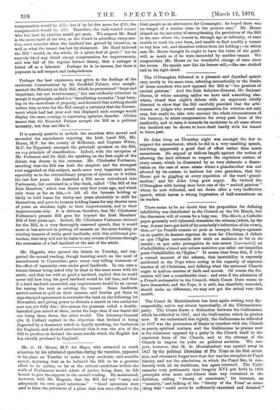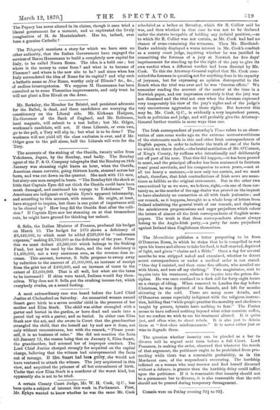The Count de Montalembert has been again writing very dis-
respectfully, not to say almost hysterically, of the Ultramontane party. The Count draws a distinction between the Gallicanism which he ridiculed in 1847, and the GallicaniSm which he praises. now. If we understand him rightly, the Gallicanism he ridiculed in 1847 was the pretension of States to interfere with the Church in purely spiritual matters, and the Gallicanism he praises now is the resistance opposed by a party in the Church itself to the absolutist form of the Church, and to the attempt of the Church to impose its yoke on political societies. We sus- pect, however, that M. de Montalembert was carried away in 1847 by the political liberalism of Pio None on his first acces- sion, and chooses to forget now that that was the exception in Papal history, and not the absolutism to which the Papal See, in con- formity with all its traditions, has again returned. The Tablet remarks very pertinently that Gregory XVL put forth in 1831 principles even more anti-liberal than any contained in the Syllabus, calling " liberty of conscience," for instance, an "insanity," and talking of the " liberty of the Press" as some- thing that " could never be sufficiently execrated and detested."
The Papacy has never altered in its claims, though it once tried a liberal government for a moment, and so captivated the lively imagination of M. de Montalembert. Has he, indeed, ever been a genuine Catholic ?



































 Previous page
Previous page